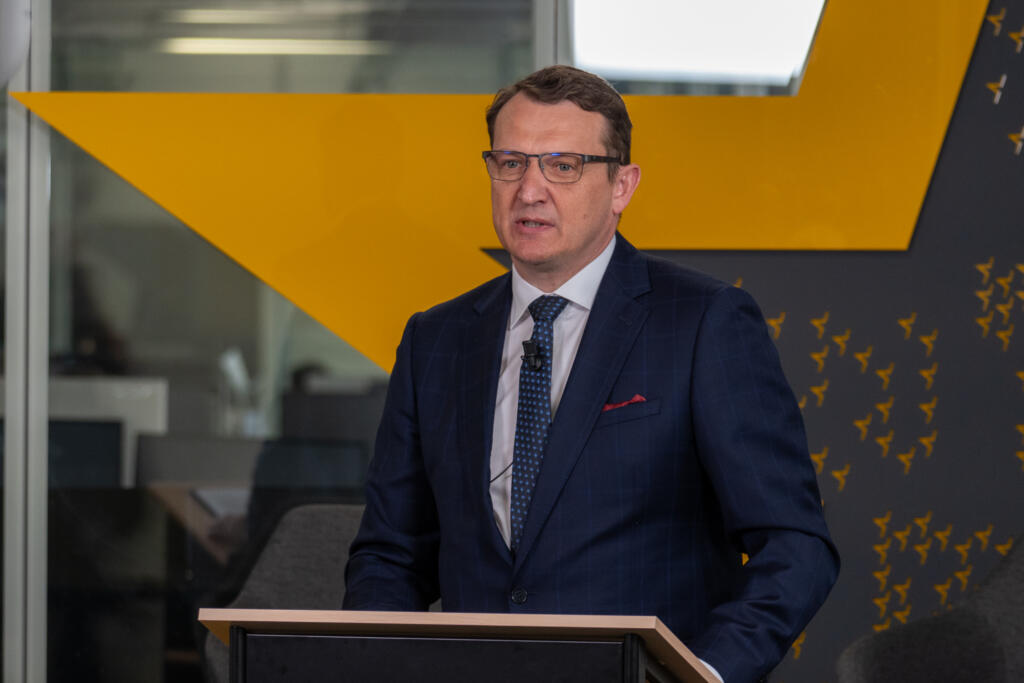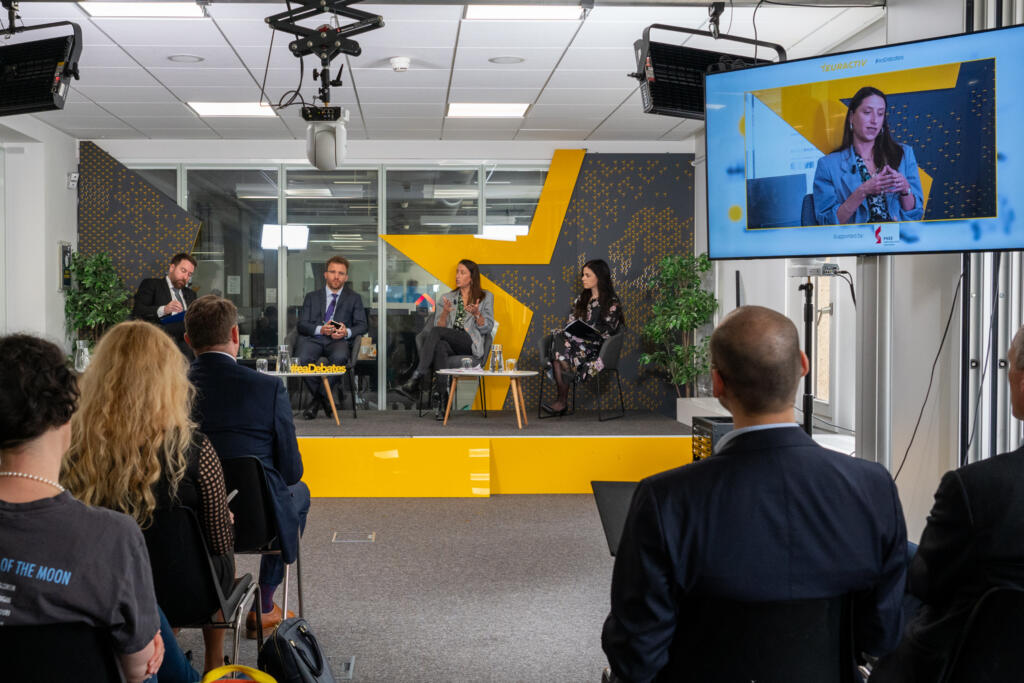The conference entitled “Power to heat – how can it decarbonise district heating?" on the issue of decarbonisation of the Polish district heating sector is behind us. On May 15, experts discussed in Brussels the directions of transformation of the industry, which is crucial to achieving climate neutrality of the EU economy. The event was organised by EURACTIV on the initiative of the Polish Electricity Association and the Polish Association of Professional Combined Heat and Power Plants (PTEZ).
The decarbonisation of the heating industry implies, in accordance with the regulations of the European Green Deal and the “Fit for 55” package, increasing the share of renewable energy sources in electricity and heat production. Hence, the conference also discussed power-to-heat technologies that can help effectively achieve the targets stipulated in the EED and RED III directives. The role that power-to-heat solutions can play in stabilising the electricity system was raised.

- - District heating in Poland is very extensive, which means that its transformation will be a difficult process. Today’s debate was an opportunity to share good practices and experiences related to the use of power-to-heat technology in the Polish heating industry. One example is PGE Energia Ciepła’s latest investment in a large-scale power and heat generation project in Gdansk, in the north of Poland. It consists of two electrode boilers with a capacity of 35 MWt each and can convert green electricity into heat" pointed out Mariusz Michałek, President of PTEZ and Vice-President of PGE Energia Ciepła, at the opening of the conference.
The expert debate featured:
- Matthieu Ballu - Policy Officer, Renewable Energy Unit, DG ENER, European Commission
- Dr Andrej Jentsch - Programme Manager, IEA DHC
- Aurélie Beauvais - Managing Director, Euroheat & Power
- Dorota Jeziorowska - Director, PTEZ
The panelists noted that it is particularly demanding in the decarbonisation process to significantly increase the share of renewable energy in heat generation processes. Developing technologies to convert surplus green electricity into heat is a major opportunity. Hence the importance of implementing power-to-heat solutions, particularly in large district heating systems, which are the most difficult to decarbonise due to their high heat demand and lack of local renewable sources.
- If we look at the power sector, electricity generation can be decarbonised relatively quickly, while decarbonising district heating systems is much more difficult. Although the share of electricity from renewable sources, mainly wind and solar, is increasing in the electricity system, the difficult issue is how to manage its surplus. District heating systems can be a very good area for managing surplus electricity from RES for heating purposes - emphasised Dorota Jeziorowska, Director of PTEZ, during the debate.

The industry’s most important demands regarding the development of power-to-heat technology were pointed out during the conference. Representatives of the sector called for qualifying heat generated in electrode boilers from RES electricity supplied from the national electric power system as RES heat for the purpose of meeting the so-called volume criterion within the definition of an efficient district heating system.
From the perspective of district heating companies, the provisions stipulated in the EED and RED III make it possible to recognise the aforementioned volume of heat generated from renewable electricity for the purpose of meeting the criteria of an energy-efficient system. However, it is necessary to reflect this in national legislation, as part of the transposition of these directives.
- Given the very ambitious climate and energy policy targets, we cannot afford to lose a single MWh of clean energy. In this case, electrode boilers can be a way to reduce the phenomenon of forcing a reduction in production and increase the potential for using clean energy, and on the other hand, they should participate in meeting the criterion of an efficient district heating system - points out Director Jeziorowska.
A discussion on the wider use of heat pumps, which in the future will be at the base of the operation of district heating systems in many cities, was also held. However, their operating profile is different from electrode boilers, and the challenges are also different – they are not competing technologies.
- Given the need, on the one hand, to manage surplus electricity from the national electric power system, and, on the other hand, to provide reserve-peak capacity in district heating systems, it is very important to develop electrode boiler technology. In 2023 alone, two such units at the Gdansk CHP plant supplied clean heat to the district heating system for 450 hours, resulting in 3,200 tons of avoided CO2 emissions, equivalent to capturing emissions from 800 hectares of forest. In addition, in the future, they will be able to effectively use surplus green energy from RES in the generation process, including offshore wind farms currently being built in the Baltic Sea - emphasised the PTEZ President. - By 2030, PGE Polska Grupa Energetyczna wants to build nearly 1 GWt in power-to-heat technologies, including both electrode boiler and heat pump installations. Power-to-heat technology, understood as both heat pumps and electrode boilers, is one of the key solutions that, when used properly, will decarbonise our district heating systems in a way that is economically efficient and as acceptable to end users as possible.
A full transcript of the conference is available at Euractiv.com.
More information on PTEZ.
Photo source: Zoran Popovic, Euractiv

